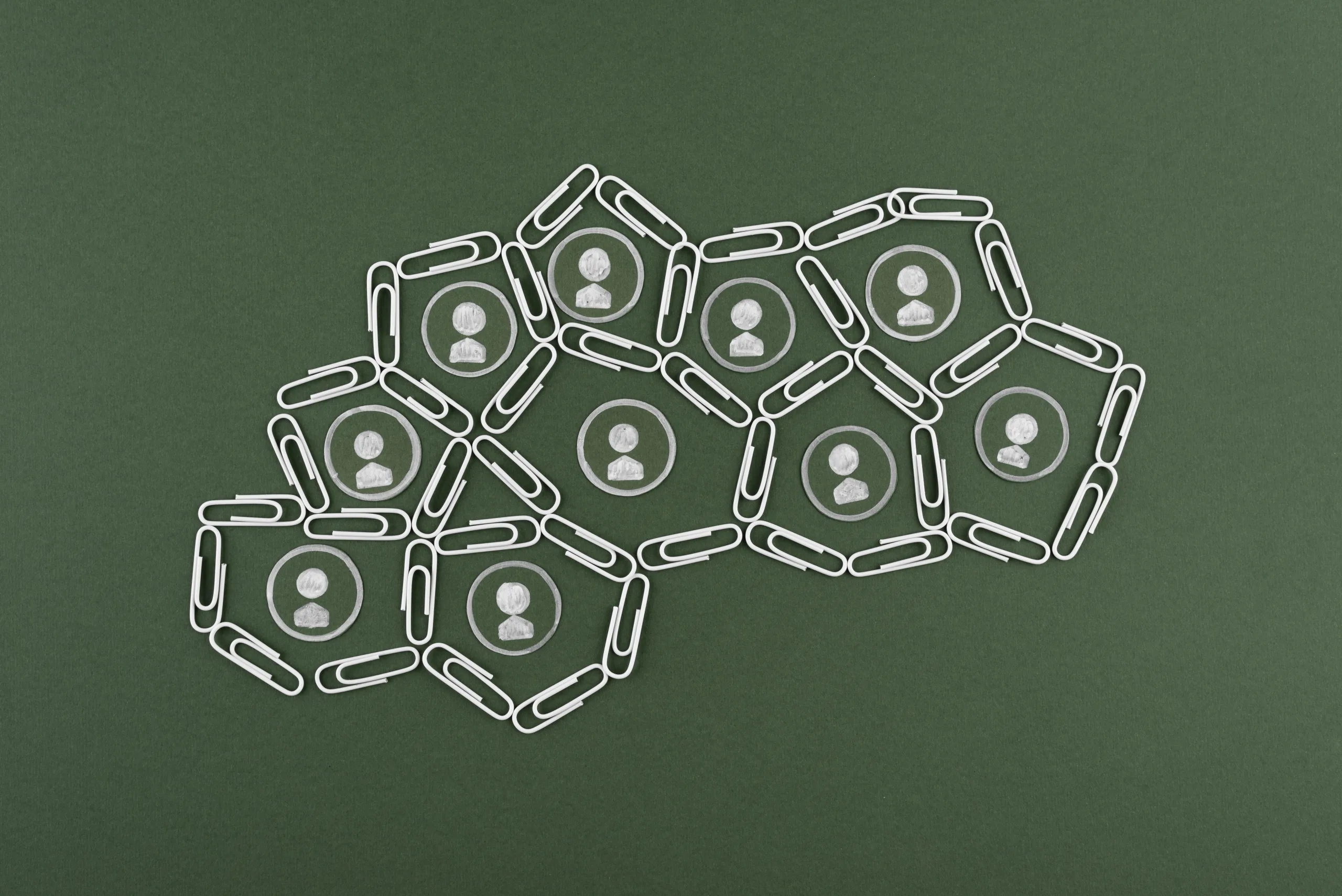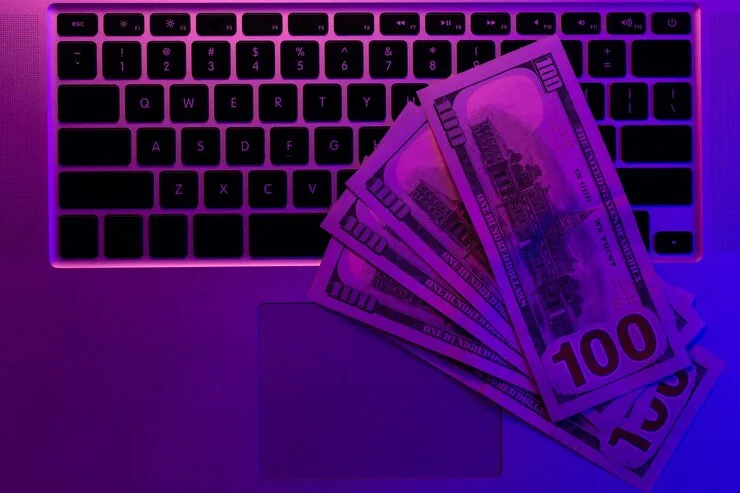DAO Community Governance: Building Decentralized Trust for the Future
- Introduction to DAO Community Governance
- What Is a DAO (Decentralized Autonomous Organization)?
- Why Governance Matters in DAOs
- The Evolution of DAO Governance Models
- Core Principles of DAO Community Governance
- DAO Governance Mechanisms and Structures
- Benefits of DAO Community Governance for Businesses and Students
- Challenges and Limitations in DAO Governance
- Case Studies of Successful DAO Governance Models
- Tools and Platforms Supporting DAO Governance
- Future Trends in DAO Governance
- Best Practices for Building a Strong DAO Community
- How to Start Your Own DAO: A Step-by-Step Framework
- Legal and Ethical Considerations in DAO Community Governance
- Frequently Asked Questions (FAQs)
- Conclusion: The Road Ahead for DAO Community Governance
Introduction to DAO Community Governance
In recent years, DAO Community Governance has become one of the most transformative innovations in the blockchain and Web3 ecosystem. Standing for Decentralized Autonomous Organization, a DAO is a digital community that operates without centralized leadership. Instead, it relies on smart contracts, token-based voting, and transparent governance rules encoded on the blockchain.
For business owners, DAOs present a revolutionary way to coordinate resources and decision-making without traditional hierarchies. For students, DAOs offer a real-world case study in democratic governance, technology, and economics—all in one evolving system.
The rise of DAO Community Governance reflects a broader trend toward trustless systems, where rules replace rulers. As we move into an increasingly decentralized digital era, understanding how DAOs operate—and why their governance structures matter—becomes critical for entrepreneurs, developers, and anyone invested in the future of collaboration.
What Is a DAO (Decentralized Autonomous Organization)?
A DAO is a blockchain-based entity governed by code rather than centralized executives. Members hold governance tokens that grant them voting power, allowing decisions to be made collectively. Unlike traditional corporations, where decisions often flow top-down, DAOs rely on a bottom-up governance model, enabling members to propose, debate, and vote on initiatives in a transparent, immutable manner.
DAOs function through smart contracts, which automatically execute rules once certain conditions are met. This automation removes intermediaries, reducing operational costs while increasing efficiency and trust.
Why Governance Matters in DAOs
Governance defines how decisions are made, who has power, and how that power is exercised. In DAO Community Governance, governance is not a secondary function—it is the core operating system. The governance framework ensures that a DAO remains aligned with its community’s mission and values, enabling collective coordination without central authority.
A strong governance system provides:
-
Clarity in decision-making processes.
-
Accountability through on-chain transparency.
-
Sustainability, as communities adapt to changing conditions.
Without effective governance, even a well-funded DAO can collapse into chaos, apathy, or exploitation by large token holders. Thus, the strength of DAO Community Governance lies in its ability to balance decentralization with effective management.
The Evolution of DAO Governance Models
From Centralized Control to Community-Led Decision-Making
The earliest digital organizations mimicked traditional hierarchies. However, blockchain technology introduced a paradigm shift. The first DAOs replaced executive decision-making with community-driven governance, emphasizing voting rights, transparency, and autonomy.
Key Milestones in DAO Development
-
2016 – “The DAO” on Ethereum:
The first major experiment in decentralized governance. Despite its later hack, it inspired thousands of subsequent DAOs. -
2018 – Rise of Governance Tokens:
Projects like MakerDAO and Aragon introduced tokens that represent voting rights, creating democratic ownership. -
2020–2024 – Maturity of DAO Frameworks:
Modern DAOs now use modular frameworks, cross-DAO collaboration tools, and AI-supported governance models to scale effectively.
Influential DAO Projects in Web3 Ecosystems
-
MakerDAO: Built on Ethereum, it governs the DAI stablecoin through token-based voting.
-
Uniswap DAO: Controls one of the largest decentralized exchanges, managing liquidity and protocol upgrades.
-
Aave DAO: Oversees lending and borrowing markets via smart contract governance.
-
Aragon: Provides infrastructure for others to create and manage DAOs seamlessly.
These projects illustrate how governance can evolve from mere community input to fully autonomous organizational control.
Core Principles of DAO Community Governance
DAO governance is guided by four foundational principles that ensure equity, inclusivity, and efficiency.
Transparency and On-Chain Voting
Every transaction, proposal, and vote is publicly recorded on the blockchain. This radical transparency eliminates the possibility of backroom deals and opaque decision-making, fostering trustless collaboration.
Token-Based Decision Systems
Tokens are the lifeblood of DAO governance. Holders use them to vote, delegate, or create proposals. Depending on the DAO, voting power can be equal, proportional to holdings, or weighted by reputation.
Tokenomics must be designed carefully—too much centralization leads to plutocracy, while too little may cause fragmentation.
Smart Contracts as Governance Tools
Smart contracts serve as automated enforcers of decisions. When a proposal passes, the smart contract executes the change automatically—be it fund allocation, parameter updates, or project launches. This eliminates human bias and ensures rule consistency.
Inclusivity and Stakeholder Representation
The most successful DAOs empower diverse voices. Mechanisms like delegated voting, quadratic voting, or multi-signature systems ensure that no single group dominates governance, preserving fairness and long-term stability.
DAO Governance Mechanisms and Structures
Voting Models: Quadratic, Weighted, and Reputation-Based
-
Quadratic Voting: Prevents whales from dominating decisions by giving diminishing power to each additional token used in voting.
-
Weighted Voting: Votes are proportional to token holdings, suitable for high-stake decisions.
-
Reputation-Based Voting: Allocates votes based on contribution history, rewarding active participants rather than mere holders.
Governance Tokens and Their Roles
Governance tokens allow users to propose, debate, and vote. Examples include UNI (Uniswap), COMP (Compound), and MKR (MakerDAO). Tokens symbolize not just ownership, but responsibility and participation in shaping the project’s direction.
The Importance of Consensus Protocols
Consensus ensures unity within diversity. DAOs use on-chain consensus, snapshot voting, or off-chain signaling to capture community intent. Balancing speed with accuracy remains a key challenge in DAO operations.
Benefits of DAO Community Governance for Businesses and Students
Empowering Business Owners Through Decentralization
For business owners, DAOs represent an innovative way to manage operations without bureaucratic overhead. Through tokenized governance, companies can:
-
Raise funds via community participation.
-
Distribute power fairly among stakeholders.
-
Enhance accountability by automating record-keeping and auditing.
Moreover, DAOs reduce dependency on third parties, allowing businesses to form self-sustaining ecosystems governed by their customers, suppliers, and investors.
Educational Opportunities for Students in DAO Ecosystems
For students, DAOs offer firsthand experience in digital governance, economics, and decentralized finance (DeFi). Joining or observing DAOs allows learners to:
-
Understand real-world applications of blockchain.
-
Develop leadership and collaboration skills.
-
Explore open-source governance frameworks and proposal systems.
DAOs are the ultimate laboratories for learning how technology and community can merge to govern shared digital assets efficiently.
Challenges and Limitations in DAO Governance
Despite its promise, DAO Community Governance faces practical and philosophical hurdles.
Governance Fatigue and Voter Apathy
As DAOs scale, participation rates often decline. Members grow disengaged due to:
-
Proposal overload.
-
Complexity in understanding governance issues.
-
Lack of meaningful incentives for participation.
To counter this, DAOs employ delegate systems, gamified participation, and automated voting alerts.
Legal and Regulatory Ambiguities
DAOs operate across borders, often clashing with existing legal frameworks. The absence of a universal regulatory standard raises questions about liability, taxation, and intellectual property rights.
However, progress is being made—Wyoming (USA) recognized DAOs as legal entities, paving the way for others to follow.
Security Risks and Smart Contract Vulnerabilities
Even the best code can harbor flaws. The 2016 DAO hack serves as a lasting reminder of the need for:
-
Continuous code auditing.
-
Bug bounty programs.
-
Insurance mechanisms to protect funds.
Case Studies of Successful DAO Governance Models
MakerDAO: Pioneering Financial Decentralization
MakerDAO exemplifies how governance tokens can stabilize a decentralized financial ecosystem. Token holders vote on collateral types, stability fees, and system parameters that maintain the DAI stablecoin’s peg.
Uniswap DAO: Managing Liquidity and Policy
Uniswap transitioned from developer-led governance to full community ownership. Through UNI tokens, the community controls the protocol treasury, liquidity mining, and upgrade proposals.
Aragon DAO: Enabling On-Chain Organizational Governance
Aragon offers modular governance tools for startups and nonprofits alike. Its open-source architecture allows anyone to create a DAO, manage memberships, and enforce decisions on-chain.
Tools and Platforms Supporting DAO Governance
Snapshot, Gnosis Safe, and AragonOS
-
Snapshot: Off-chain voting with on-chain verification.
-
Gnosis Safe: Multi-signature wallet for secure DAO treasury management.
-
AragonOS: A modular framework for creating and managing DAOs efficiently.
DAOstack and Colony Frameworks
DAOstack provides reputation-weighted governance, while Colony focuses on task-based contribution systems where reputation grows with verified work.
How Tools Enhance Governance Efficiency
These tools simplify proposal creation, voting, and execution—lowering entry barriers and ensuring transparent, auditable decision-making.
Future Trends in DAO Governance
The landscape of DAO Community Governance is evolving rapidly. As technology and societal needs shift, DAOs are embracing innovation to improve participation, transparency, and scalability.
AI Integration in DAO Voting and Proposals
Artificial Intelligence (AI) is beginning to influence DAO decision-making. AI-powered analytics tools can:
-
Assess proposal sentiment.
-
Predict voting outcomes.
-
Automate moderation of spam or low-quality proposals.
By integrating AI, DAOs enhance efficiency and ensure data-driven governance, reducing cognitive overload on community members.
Cross-DAO Collaborations and Meta-Governance
In 2025, the concept of meta-governance—DAOs governing other DAOs—is gaining traction. This inter-DAO collaboration allows communities to share resources, coordinate decisions, and maintain interoperability across different ecosystems.
Projects like Curve DAO and Yearn Finance already practice meta-governance by voting in other DAOs using their treasury-held governance tokens.
Sustainability and Long-Term Community Engagement
Sustainability depends on active member participation. DAOs are now adopting participation incentives, tiered governance rewards, and education programs to keep members engaged long-term.
A sustainable DAO fosters:
-
Continuous onboarding of new contributors.
-
Transparent feedback systems.
-
Resilient governance structures that can evolve with time.
Best Practices for Building a Strong DAO Community
Establishing a thriving DAO goes beyond deploying smart contracts—it requires strategy, communication, and trust.
Clear Governance Charters and Constitutions
Every DAO should establish a governance constitution outlining:
-
Mission and values.
-
Proposal and voting processes.
-
Member rights and obligations.
This document acts as a social contract that unites the community and defines expectations.
Incentive Design for Participation
Participation incentives drive engagement. Effective DAO designs use:
-
Token rewards for active voters and proposal creators.
-
Reputation points for verified contributions.
-
Staking mechanisms to discourage malicious behavior.
Balanced incentives foster loyalty while discouraging short-term profiteering.
Education and Communication Within DAOs
Transparent communication is the lifeblood of community governance. Successful DAOs host:
-
Weekly community calls.
-
Public documentation of discussions.
-
Mentorship programs for newcomers.
These practices create a welcoming, informed, and empowered community.
How to Start Your Own DAO: A Step-by-Step Framework
Launching a DAO can be transformative for entrepreneurs and innovators. Here’s a simplified guide for those ready to begin.
1. Designing the Purpose and Mission
Define why your DAO exists. Is it to manage a protocol, fund community projects, or curate NFT art? Clarity of purpose attracts the right members.
2. Choosing the Right Blockchain and Tools
Ethereum remains the most popular choice due to its robust ecosystem, but alternative chains like Polygon, Avalanche, and Optimism offer lower fees and faster transactions.
3. Tokenomics and Governance Token Design
Decide how tokens will:
-
Be distributed (airdrops, sales, or contributions).
-
Represent voting power.
-
Encourage long-term commitment.
Tokenomics should reward meaningful participation, not speculation.
4. Launching and Sustaining a DAO Ecosystem
After deployment:
-
Onboard members through clear documentation.
-
Conduct initial governance proposals.
-
Continuously iterate on rules to adapt to community needs.
Long-term success depends on iterative improvement and member-driven evolution.
Legal and Ethical Considerations in DAO Community Governance
Jurisdictional Challenges and Compliance
DAOs often face uncertainty around jurisdiction and legal recognition. While some regions (like Wyoming and the Marshall Islands) recognize DAOs as legal entities, others lack frameworks to define them.
To remain compliant:
-
Implement legal wrappers (e.g., LLCs) where necessary.
-
Maintain transparent financial reporting.
-
Ensure adherence to local and international regulations regarding data, finance, and securities.
Ethical Decision-Making in a Decentralized Context
Without centralized authority, DAOs must develop ethical frameworks for:
-
Handling conflicts of interest.
-
Allocating resources equitably.
-
Preventing manipulation by majority stakeholders.
The community should collectively define what constitutes ethical governance and enforce it transparently.
Balancing Autonomy with Accountability
Autonomy does not mean absence of responsibility. DAOs must:
-
Audit financial transactions regularly.
-
Maintain open forums for proposal discussions.
-
Build mechanisms for dispute resolution and member accountability.
This balance ensures freedom without anarchy—an essential feature of sustainable DAO governance.
Frequently Asked Questions (FAQs)
1. What is the main purpose of DAO Community Governance?
DAO Community Governance enables decentralized communities to make collective decisions transparently using blockchain-based voting and smart contracts, ensuring fairness and autonomy without central authority.
2. How do DAO members vote on proposals?
Members use governance tokens to vote either on-chain (directly recorded on the blockchain) or off-chain (via platforms like Snapshot). Each vote’s weight depends on the DAO’s specific voting model.
3. Can businesses integrate DAO governance models?
Absolutely. Many startups and established companies use DAO structures to manage community funds, product development, or decision-making transparently. It enhances trust and stakeholder engagement.
4. Are DAOs legally recognized?
In some jurisdictions, yes. For instance, Wyoming (USA) recognizes DAOs as legal entities. However, global recognition remains inconsistent, requiring hybrid legal structures for full compliance.
5. What are the biggest challenges facing DAOs today?
Key challenges include low voter turnout, legal ambiguity, smart contract vulnerabilities, and coordination inefficiencies. Overcoming these requires continuous innovation and education.
6. How can students participate in DAOs?
Students can join DAOs as contributors, developers, designers, or researchers. Many DAOs offer internships, educational programs, and bounties for learning blockchain governance hands-on.
Conclusion: The Road Ahead for DAO Community Governance
As we look to the future, DAO Community Governance stands as a bold experiment in democracy, technology, and collaboration. By removing intermediaries, DAOs empower individuals to coordinate globally based on shared values and transparent systems.
For business owners, DAOs offer efficient, trust-based governance models that reduce costs and enhance engagement. For students, they serve as real-world classrooms where economics, politics, and computer science converge.
The next decade will likely witness AI-assisted governance, cross-chain collaboration, and global legal frameworks that bring DAOs into mainstream operations.
The essence of DAO governance lies not just in decentralization, but in community empowerment—proving that technology, when guided by collective intent, can redefine how humanity organizes itself.
🌐 External Resource
For more insights, visit Ethereum.org’s DAO Overview




Discussion (0)